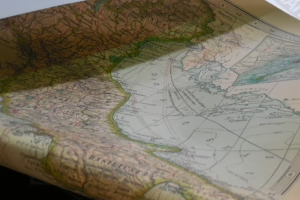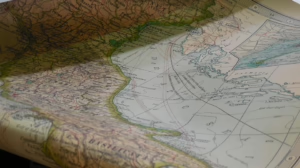The Role of Technology in Shaping Historical Events
Introduction
The influence of technology on the course of human history is undeniable. From the invention of the wheel to the advent of the internet, technological advancements have provided both the means to accomplish tasks more efficiently and the ability to reshape social, political, and economic landscapes. This article explores key historical events that were significantly impacted by technology, examining how innovations facilitated changes that altered the trajectory of societies around the world.
The Wheel and Transportation
One of the earliest technological innovations, the wheel, revolutionized transportation and trade. Dating back to around 3500 BCE in Mesopotamia, the wheel enabled the movement of goods over greater distances. The ability to transport materials not only increased commerce but also fostered cultural exchange.
The Impact of the Wheel
The wheel’s introduction allowed for the development of chariots, which played a crucial role in warfare, further altering the power dynamics of ancient civilizations. For instance, the introduction of chariots by the Hittites changed the nature of conflict in the ancient Near East. The increased speed and mobility allowed by the wheel led to more strategic battlefield tactics.
Footnote: [1] Van De Mieroop, M. (2016). A History of the Ancient Near East, ca. 3000-323 BC. Wiley-Blackwell.
Printing Press and the Spread of Ideas
The invention of the printing press in the 15th century was a pivotal moment in history. Johannes Gutenberg’s innovation enabled the mass production of written materials, facilitating the spread of knowledge, literacy, and ideas.
The Reformation
This technological advancement had a profound impact on the Protestant Reformation. Martin Luther’s 95 Theses, disseminated widely thanks to the printing press, challenged the Catholic Church’s authority and doctrine, ultimately leading to significant religious and social upheaval across Europe.
Footnote: [2] Eisenstein, E. L. (1979). The Printing Revolution in Early Modern Europe. Cambridge University Press.
Enlightenment and Scientific Revolution
The printing press also played a vital role during the Enlightenment and the Scientific Revolution. Works by philosophers like John Locke and scientists like Isaac Newton were distributed widely, challenging existing paradigms and encouraging critical thinking.
Footnote: [3] Outram, D. (2013). The Enlightenment. Cambridge University Press.
Industrial Revolution and Economic Transformation
The Industrial Revolution, which began in the late 18th century, marked a turning point in human history. Innovations such as the steam engine, spinning jenny, and mechanical loom transformed economies from agrarian to industrial.
The Rise of Factories
The establishment of factories enabled mass production, drastically increasing output and efficiency. However, this shift also resulted in significant social changes, including urbanization and changes in labor dynamics.
Labor Movements
As industries expanded, so did the working class, which led to the rise of labor movements. Workers began to organize for better conditions and wages, prompting legislative changes that reshaped labor laws.
Footnote: [4] Thompson, E. P. (1963). The Making of the English Working Class. Vintage Books.
Communication Technologies and Global Connectivity
The development of communication technologies, from the telegraph and telephone to the internet, has had a significant impact on historical events and social interactions.
The Telegraph and Modern Warfare
The invention of the telegraph in the 19th century revolutionized communication. Its immediacy changed the nature of warfare, as commanders could communicate strategic information rapidly.
Footnote: [5] Muir, H. (2016). The Telephone: An Illustrated History. Bloomsbury.
The Internet and Information Age
In the late 20th century, the rise of the internet ushered in the Information Age. This technological shift has transformed how individuals and societies communicate, disseminate information, and interact.
Social Movements
The internet has played a crucial role in the organization of social movements, such as the Arab Spring and various civil rights movements around the world. Social media platforms have become tools for mobilization and awareness.
Footnote: [6] Howard, P. N., & Hussain, M. (2011). Democracy’s Fourth Wave? Digital Media and the Arab Spring. The First Monday.
Military Technology and Global Conflicts
Military technology has always been a significant factor in warfare and international relations. Innovations in weaponry, transportation, and strategy have often determined the outcomes of conflicts.
World War I and Technological Warfare
World War I saw the introduction of tanks, airplanes, and chemical weapons, each profoundly affecting combat tactics and civilian life.
Footnote: [7] Keegan, J. (1993). The Face of Battle. Random House.
World War II and Atomic Warfare
The development of nuclear weapons during World War II represented a watershed moment in military technology. The bombings of Hiroshima and Nagasaki not only ended the war but also introduced a new era of geopolitical tension.
Footnote: [8] Giambastiani, R. (1998). The American Military and the History of Nuclear Weapons. Military Review.
Conclusion
Technology has played an instrumental role in shaping historical events. From transportation and communication to military innovations, the impacts are vast and complex. Each technological advancement has the potential to cause ripple effects, altering social dynamics, economic structures, and geopolitical landscapes. The future will undoubtedly hold more technological breakthroughs that will continue to influence our world and its history.
References
- Van De Mieroop, M. (2016). A History of the Ancient Near East, ca. 3000-323 BC. Wiley-Blackwell.
- Eisenstein, E. L. (1979). The Printing Revolution in Early Modern Europe. Cambridge University Press.
- Outram, D. (2013). The Enlightenment. Cambridge University Press.
- Thompson, E. P. (1963). The Making of the English Working Class. Vintage Books.
- Muir, H. (2016). The Telephone: An Illustrated History. Bloomsbury.
- Howard, P. N., & Hussain, M. (2011). Democracy’s Fourth Wave? Digital Media and the Arab Spring. The First Monday.
- Keegan, J. (1993). The Face of Battle. Random House.
- Giambastiani, R. (1998). The American Military and the History of Nuclear Weapons. Military Review.
This article provides a foundational overview of technology’s role in shaping historical events. For a more detailed exploration, each section could be expanded significantly, delving deeper into specific events, case studies, and the nuances of how technology impacts society. Would you like to focus on any particular section in more detail?


























Add Comment